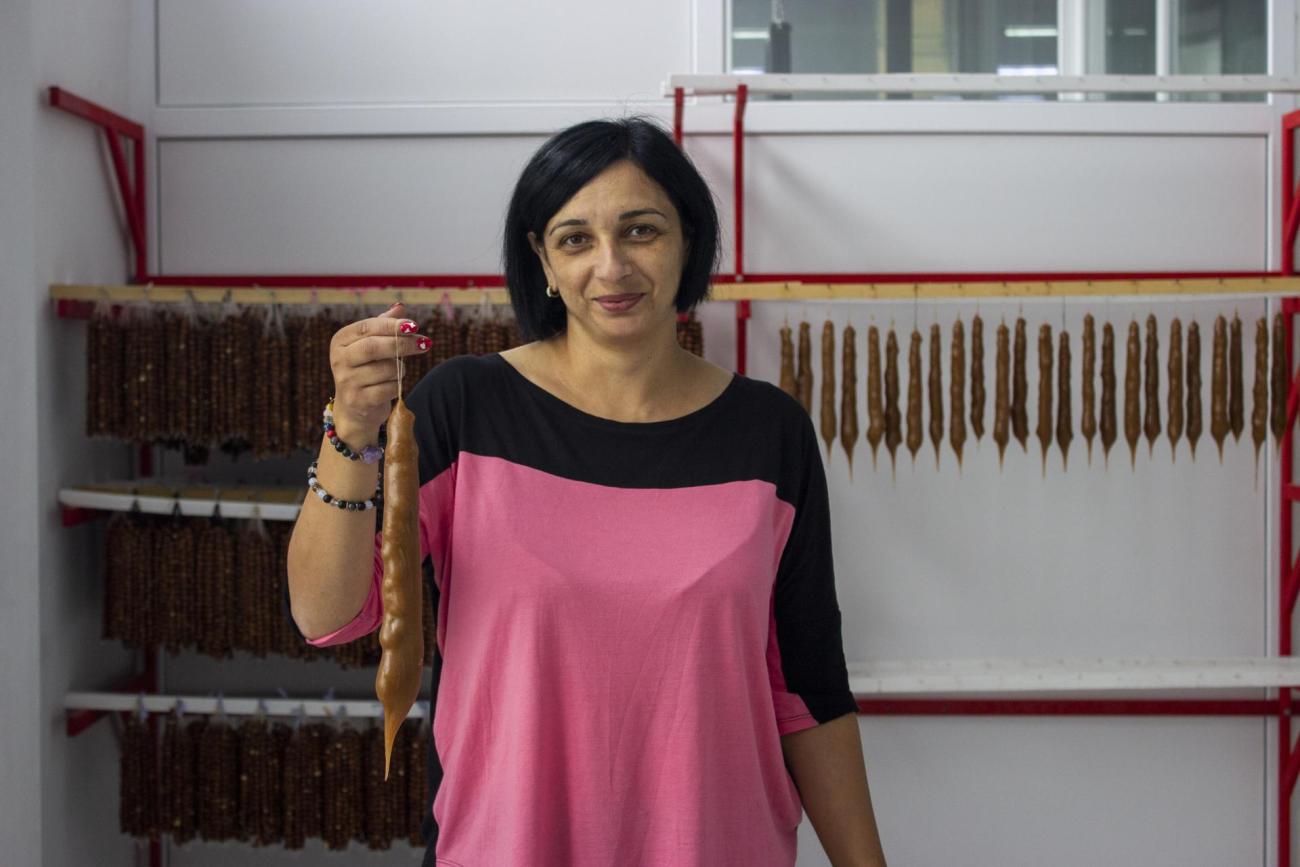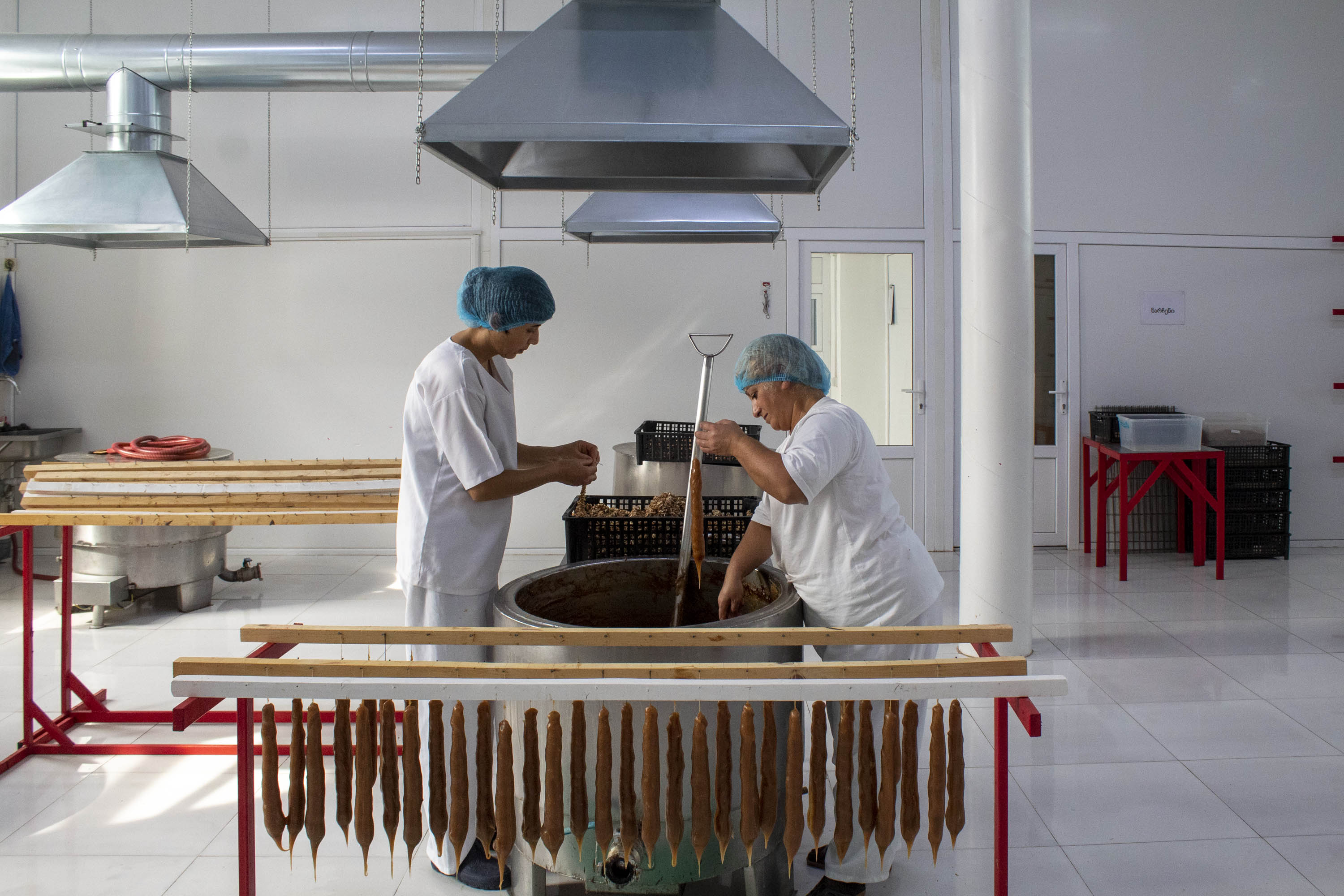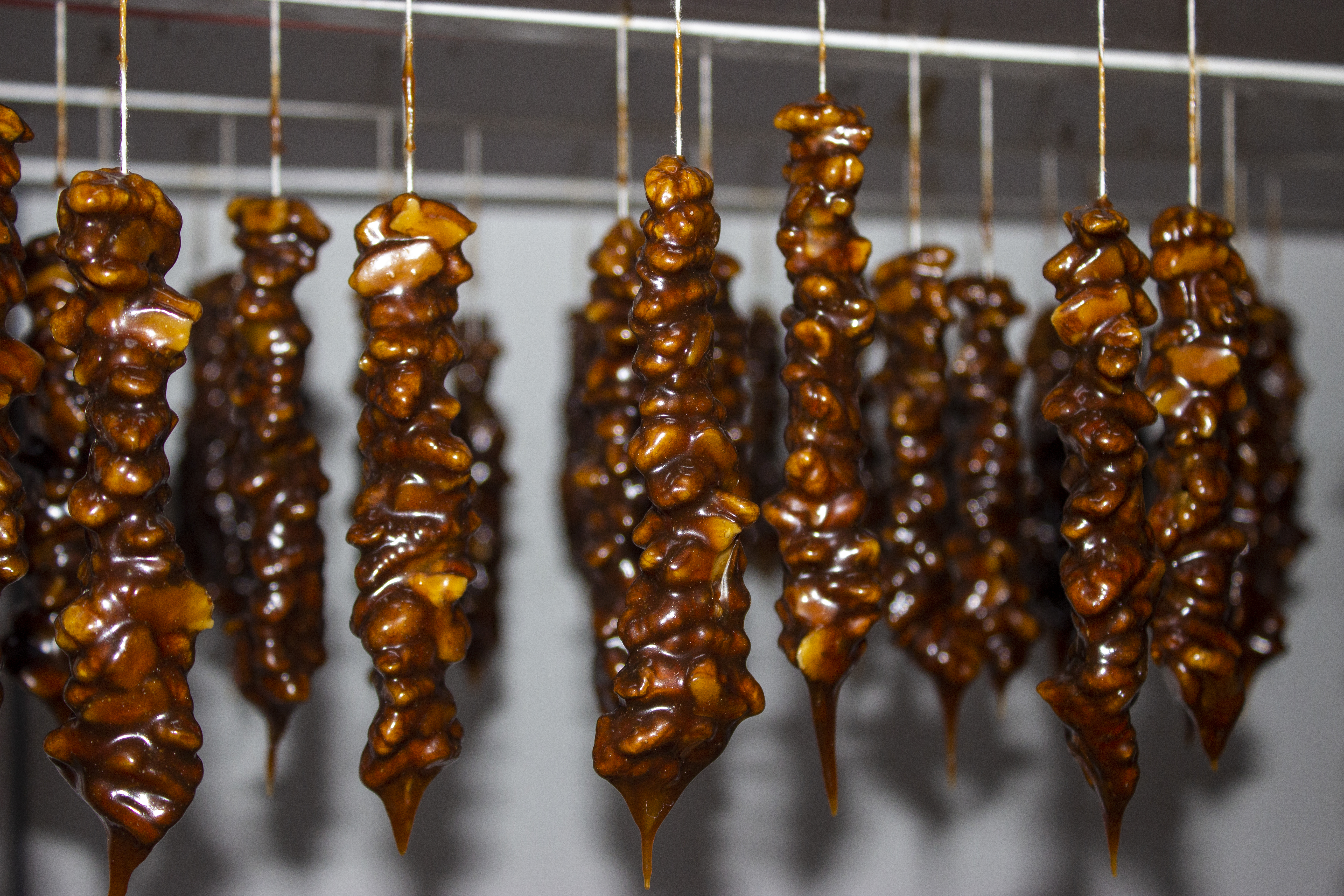Traditional Georgian sweet hits European markets

EU and UNDP support a women entrepreneur to expand Churchkhela production
For Eka Boqolishvili, it all started in the village of Saqobo, eastern Georgia, in her kitchen, with one pot and far-reaching wishes to introduce Georgian treats to the world.
With a clear goal in mind, Boqolishvili and her cousin and business partner, Bidzina Pkhovelishvili, founded a company called Nugbari LTD and focused on producing Churchkhela – a traditional candle-shaped sweet that has the strategic importance of spreading Georgian culture abroad.
“Back then, it was just me,” said Boqolishvili. “I would make Tatara (silky grape pudding), put walnuts on threads, dip them into the mixture and hang for drying. For the amount we were producing, I was all the team we needed.”
But that was about to change.
Soon Boqolishvili discovered that her goal of placing Nugbari products on Georgian and international markets might be closer than expected.

Photo: UNDP Georgia/Sandro Siamashvili
A sudden growth and unexpected turns
The demand for Nugbari products skyrocketed as people were buying more and more of their Churchkhela in big supermarkets around the country. After the rise in sales, offers for exports followed along. And Boqolishvili decided it was high time they moved out of the kitchen. Four years ago, they bought land with an old building in the same village, renovated it, and started a new chapter.
To expand production, Boqolishvili hired people living in local villages, mostly women, who were involved in every step of the cycle, from condensing the grape juice to packaging the final product. What started as a one-person production turned into a full-scale business with 60 employees who’d make over 5,000 to 6,000 Churchkhela daily. These products were then sold in markets across Georgia and exported to more than 20 countries, including the U.S., Ukraine, Lithuania, Germany, China, Poland, and Great Britain.
Nugbari was on top of its journey when the Covid-19 pandemic hit the world. Even though the enterprise continued to work, exports slowed down, and local demand for products significantly decreased.
“People didn’t need Churchkhela during the pandemic as they were thinking of staying alive,” Boqolishvili explained.
Soon enough, a second major crisis shook the region – Russia’s full-scale invasion of Ukraine. For Nugbari, Ukraine was one of the main export destinations, with at least 10,000 Churchkhela being sent to the country each month. Additionally, Nugbari exporters transferred products to countries like Lithuania or Latvia through Russia with lower costs. Because of the war, this route got much more expensive.
“Lithuanian importers used to buy over 25,000 Churchkhela a month. Now they (importers) ordered just over 5,000 to test if it would be too expensive to export in times of war,” Boqolishvili explained, noting that today, “Nugbari” exports 15,000 monthly to different countries, compared to 65,000 before the pandemic and the war in Ukraine.

Photo: UNDP Georgia/Sandro Siamashvili
New beginnings
On top of two major global challenges, the company also faced an internal issue – the vacuum machines used for packaging Churchkhela couldn’t process huge amounts of product and would often break down.
“The machine wouldn’t seal the product properly. Our Churchkhela travels across continents for months, often in humidity and cold. Since the products weren’t sealed well enough, they would become hard in texture and develop a sugared surface,” said Boqolishvili, noting the overall quality of the product would decrease, and customers would be dissatisfied.
Luckily, Nugbari got support from a joint project implemented by UNDP: EU Innovative Action for Private Sector Competitiveness in Georgia under the EU4Business umbrella. Intersecting with the packaging sector by producing packed Churchkhela, the EU project assisted Nugbari in acquiring new, modern machinery. The company purchased a new vacuum skin packaging device and implemented innovative packaging technology, that puts economic and environmental impacts on place, reducing food and production/packaging waste. These machines use fully recyclable raw materials and have 30% less waste than traditional vacuum packaging machines.
“With new equipment, we can process more than 10,000 Churchkhela daily. It means we can now take big export orders and not worry about the product quality anymore,” she said.
“There is a huge difference between the old and the new equipment. We are very so happy about it.”
The EU and UNDP Joint Programme supports the PMAG packaging cluster by directly enhancing entrepreneurship and business sophistication with strategic investments. Nugbari got financing under the Matching Grant Program, which aims to support modernization investments in companies in the packaging value chain.
Despite challenges, with modern equipment in place, Eka Boqolishvili plans to export Georgian Churchkhela to many more countries in huge amounts.
“We have enough resources now to produce 15,000 products daily,” she says, noting the EU-UNDP support solved the problem.
“The more we export, the more people find out about Georgia and its century-long traditions, and that’s exactly what we want.”
Eka Boqolishvili, Churchkhela producer

